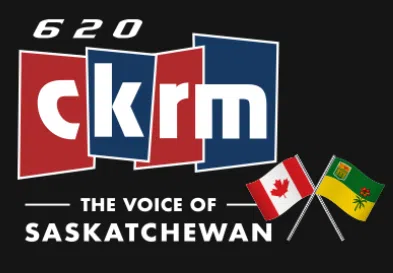Canadians gathered with heads bowed for sombre Remembrance Day ceremonies across the country on Saturday at a time when wars rage in Ukraine and the Gaza Strip, and peace seems far off for many.
That included here in Regina, where a pair of ceremonies were held. An indoor ceremony at the Brandt Centre and one at the Victoria Park Cenotaph.
Rev. James Balfour is a chaplain for the Royal Canadian Legion branch 001 and retired lieutenant commander from the Royal Canadian Naval Reserve.
“They served for their homes, families, and friends. They served for all the vary traditions that they cherished. They served for a future that they could believe in. They served for Canada and for all it stood for in their hearts and minds,” he said.
“The ultimate meaning of their serving and sacrifice now rests with our collective consciousness. Our present, our future, is the monument to who they were, to what they stood for, what they fought, and they died for,” he continued. “To allow this day to be diminished in importance would be a betrayal, and for that reason, we must remember.”
Thousands flocked to the National War Memorial near Parliament Hill to pay tribute in Ottawa.
Dignitaries, including Gov.-Gen. Mary Simon, Prime Minister Justin Trudeau, Veterans Affairs Minister Ginette Petitpas Taylor, and Defence Chief Gen. Wayne Eyre joined soldiers, veterans, pipers, and drummers.
Retired Sgt. Aubrey St. Peter, 90, braved the November chill to take in the events with his adult granddaughter. He said Canadians should remember that losses are still mounting.
“It’s tremendous, the amount of people who’ve passed away, not only during the war but when they’re retired and hanging around, like me,” he said.
Meanwhile, 92-year-old Rev. Bob Jones stopped by the city’s cenotaph in Fredericton to hear the names of fallen soldiers read aloud.
Jones was a chaplain with the military for 20 years. The Second World War ended when he was 14, but his military career took him to Israel for six months.
“When I was there, it was relatively peaceful, although the thing was, you never knew what would happen,” Jones said, adding that he regretted not visiting the Gaza War Cemetery while he was there.
“If I had known what we know now, maybe I should have made a special effort to have gotten there.”
Remembrance Day in Canada began with news that doctors at Gaza’s largest hospital said five patients died after the facility’s last generator ran out of fuel.
More than 11,000 Palestinians have been killed in Israel’s war in the Gaza Strip, including more than 4,500 children. An estimated 1,200 Israelis were killed in the Oct. 7 attacks by the militant group Hamas — which Canada classifies as a terrorist organization — that set off the current conflict.
Meanwhile, Ukrainians are bracing for another winter of war as Russia’s invasion continues.
Gilles Thibeault served in the Canadian Armed Forces for 35 years. He said he was honoured to attend the national ceremony in Ottawa, where he reflected on the Canadians lost in past conflicts and the state of the world today.
“This is bad, this is really, really bad. All the destruction and all of the lives that are being lost for I don’t know what reason,” he said.
In a Remembrance Day statement, Prime Minister Justin Trudeau encouraged Canadians to wear a poppy and take two minutes of silence to honour those who have fought, as well as troops who have taken part in peacekeeping missions and those who are training Ukrainian soldiers.
“Remembrance Day is an opportunity to recognize members of the Canadian Armed Forces who have courageously answered the call of duty. When it was needed most, they left behind their families and homes,” Trudeau said. “Many returned with severe trauma — or didn’t return at all. Their sacrifice is a debt that we can never repay.”
After the national ceremony ended, the prime minister greeted veterans and people in the crowd along Ottawa’s Wellington Street.
But mention of the ongoing wars in Ukraine and Gaza was absent from the official program. Last year, politicians and speakers all over the country asked Canadians to take note of the Ukraine war.
“We need to remember that our security can be greatly impacted by events many places in the world,” Eyre said in an interview ahead of this year’s ceremony. “So with war in Europe, war in the Middle East, high tensions in Asia-Pacific, climate change — all stressors on our security environment — we have to be prepared.”
The heavy rain that soaked Vancouver for much of Friday and overnight held off for Victory Square’s 99th annual Remembrance Day ceremony.
“We have to remember what happened because history is slowly disappearing,” said John Vink, who spent 34 years in the Canadian Air Force.
Wes Bowers, who served in the Air Force for 20 years, including during the Gulf War, laid a wreath at the cenotaph.
“Everyone should be thankful for all we have in this life, and this is one way of showing our thanks for those who served and those who died,” he said. “Especially for the families. It left a legacy of trauma.”
Michele Doran paid her respects at the Fredericton cenotaph, where snowflakes speckled the grey skies. Her late father-in-law fought in the Korean War in the 1950s, and she brought her two-year-old grandson, Max, to the ceremony to teach him to honour veterans.
“I think it’s really important even for young children to be here,” Doran said in an interview. “We wouldn’t be here today without all these veterans.”
In Toronto, hundreds attended a ceremony outside Old City Hall for retired Cpl. It was an emotional morning for Alan Roy, a third-generation Canadian military member.
“I don’t know how I managed to be this lucky,” Roy said.
“Knowing how many of my family have served before me, it’s an absolute incredible opportunity for me to be here.”
Roy served for just under ten years, following in the footsteps of his father, who served in the Second World War with the Royal Canadian Air Force. His grandfather served in both world wars. On Saturday, he proudly wore a kilt representing Canada’s tartan.
“If you turn around and look at the leaves, I’m camouflaged today,” he said, referring to the autumnal colours in his kilt.
Melanie Stephens rode her vintage bike, fitted with two baskets, to Old City Hall. Now in her 70s, she doesn’t attend every year anymore but felt she needed to be there on Saturday.
Several of her relatives served in the First and Second World Wars, including an uncle who was a bomber.
“He never spoke of the war, like so many,” Stephens said. “They blocked it out. They went on with their lives or were damaged in some way, psychologically or emotionally- they suffered.”
Stephens said she also wants people to remember those who stayed home and took care of their families.
“The wives, the mothers, the daughters who kept the home fires burning, who sacrificed themselves and worked two jobs … They pulled their weight and more. We don’t talk about the women.”
Elsewhere, flocks of pigeons took flight from Montreal’s Place du Canada as the first cannon rang out during a 21-gun salute.
The event attracted hundreds of onlookers, the poppies on their coats forming a sea of red flowers around the downtown square.
Among those watching beneath the square’s brass-coloured tree canopy was Paul Hebert, a 56-year-old veteran who served for 33 years in the Armed Forces, first for the Canadian Grenadier Guards and then for the military police. He said he plans to attend Remembrance Day events every year for as long as he can.
“This is an annual event that should be done for forever in time where … we remember those who gave the ultimate sacrifice, those who served our country since 1867 to today,” Hebert said.
“This is why I’m here, and I’ll be here every year for the rest of my time.”
With files from The Canadian Press




